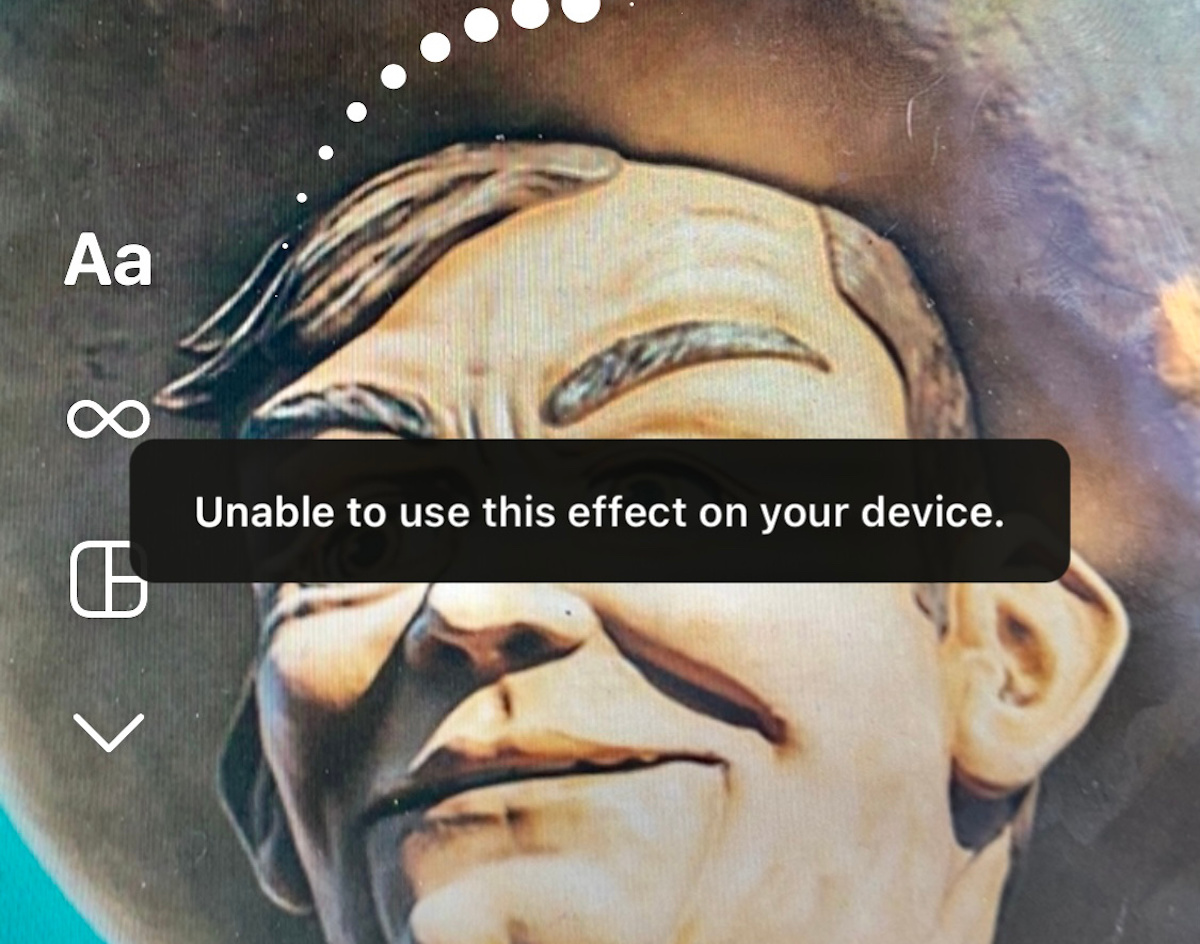You May Have Noticed Your Go-To Instagram Filter Was Removed And Unavailable – Here’s Why It’s Happening In Texas.
Updated on May 18: On May 18, a week after the social media platform disabling them, Instagram filters have returned in Texas. Before using them now, a pop-up message will appear explaining how filters work and ask you to “allow Instagram to use the camera to position effects on your face, eyes and hands.” The message also states, “This technology is not facial recognition and this information is not used to identify you.”
If you logged on to Instagram and realized your favorite face-altering filter is gone, they might be gone for good in Texas.
On Wednesday, Meta, Instagram and Facebook’s parent company, disabled reality filters off its social media platforms in response to Texas Attorney General Ken Paxton’s lawsuit against the company.
Paxton is accusing the company of misusing facial recognition technology, which violates Texas law and Texans’ privacy. He argues Facebook isn’t complying with the Texas Capture or Use of Biometric Act, the law that regulates the use of personal data, and by using facial recognition without users’ permission. These “biometric identifiers” include retina and iris scans, fingerprints, voiceprints or record or hand or face geometry.
According to the lawsuit, the State alleges that “Facebook unlawfully captured the biometric identifiers of Texans for commercial purpose without their informed consent, disclosed those identifies to others, and failed to destroy collected identifiers within a reasonable time.”
These filters, ones that use “facial geometry” and “augmented reality,” allegedly learn a user’s face and can automatically tag or associate a person with an image without their consent.
Filters that alter a background or image colors are still available, but Meta has temporarily banned the ones that change your facial features within state lines in Texas and Illinois, which has its own version of the law called the Illinois Biometric Information Privacy Act.
The Texas lawsuit against Facebook was filed in February 2022, but a settlement or decision has no been made yet. However, the disablement was done as a result of Illinois’s settlement last month from a class action lawsuit.
The Communications team at Meta released a statement saying, “The technology we use to power augmented reality effects like avatars and filters is not facial recognition or any technology covered by the Texas and Illinois laws, and is not used to identify anyone. Nevertheless, we are taking this step to prevent meritless and distracting litigation under laws in these two states based on a mischaracterization of how our features work. We remain committed to delivering AR experiences that people love, and that a diverse roster of creators use to grow their businesses, without needless friction or confusion.”
For now, we must say goodbye to our favorite, quirky filters on the ‘gram.

